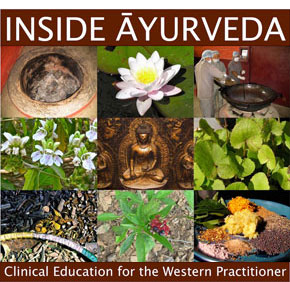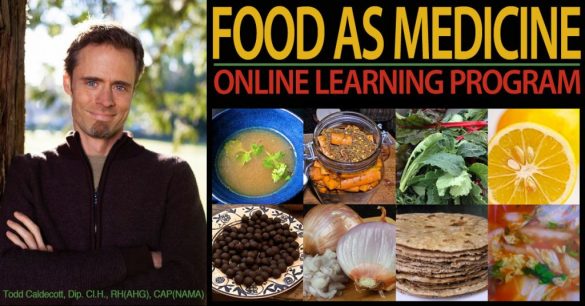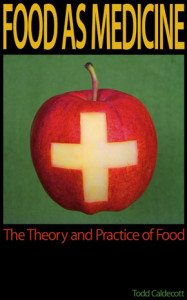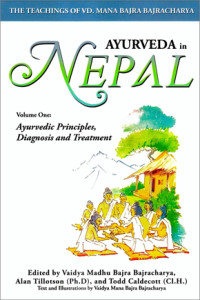(pictured above Ligusticum canbyi) Well, it's that time of year, and people are dropping like flies. Why is it that almost everyone succumbs to sickness during that fall, and how can we prevent it? From the perspective of medical science, a cold or flu is caused by one of over 200 different viruses, most commonly one of the rhinoviruses, coronaviruses, influenza viruses or the adenoviruses. Typical symptoms include cough, sore throat, runny nose, sneezing, and fever, and while most people get better in about seven to ten days, some symptoms can last up to three weeks or longer. While the science isn't clear, it is generally thought that susceptibility to viral infection occurs during this time due to factors such as decreased humidity, which increases viral transmission rates by allowing tiny viral droplets to disperse farther and stay in the air longer, as well as the fact that most of use spend more time indoors, which enhances viral transmission. But apart from that, medical … [Read more...]
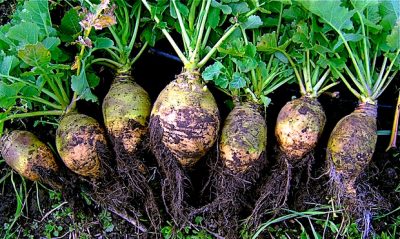
The FODMAPS diet
Over the past couple years I have heard practitioners and patients refer to the FODMAP diet as a way to resolve chronic gut issues like irritable bowel syndrome (IBS). In a nut shell, the FODMAP diet refers to the reduction or elimination of foods that contain various long-chain sugars found in foods such as cereals, pulses, root vegetables, and fruits (see this list). Specifically, the term FODMAP is an acronym devised by researchers at Monash University in Australia, referring to foods that contain "Fermentable Oligo-saccharides, Disaccharides, Mono-saccharides and Polyols". According to proponents of the FODMAP restriction diet, as well as similar diets such as the Specific Carbohydrate and GAPS diet, many of these sugars aren't properly digested. As a result, they are utilized instead by some of the bacteria that naturally inhabit our intestines, leading to their enhanced growth and fermentation, causing symptoms such as gas, bloating, colic, and diarrhea. Many people following a … [Read more...]
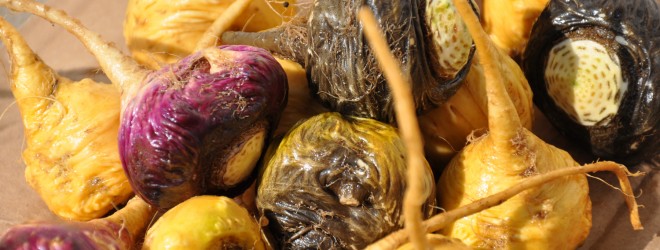
Q&A: Side-effects of Maca?
Maca (Lepidium meyenii, and other Lepidium species) is a food and medicinal plant originally used by the indigenous peoples of Peru and Bolivia, who collect and consume both the leaves and the root. Although marketed as an aphrodisiac and energy enhancer, it's traditional use suggests that it was rather more important as a food, the leaves used as a fresh vegetable, and the root (hypocotyl) dried, pulverized, and used as a flour in baking. The root in particular is comprised of about 60-75% carbohydrates, and contains smaller amounts of protein (<14%) and fats (<2.2%). Given its traditional importance as a food, rather than as a medicine, claims for its medicinal efficacy should be viewed with a some skepticism - especially when consumed in small amounts as a supplement. There are many anecdotal reports of its medicinal efficacy, but much of this comes third hand from companies selling it as a supplement. A survey of the medical literature suggests a benefit on exercise … [Read more...]

Q&A: the psychology of disease
How important is dealing with pyschological/emotional issues when dealing with disease/illness and what is the most effective way to go about this? In Ayurveda it is said that all disease is psychosomatic in nature, and that all of the suffering we bring upon ourselves is the way we react to it, engaging in behaviors that bring about more suffering, rather than practicing those that alleviate it. For example, if someone is angry at us, do we respond with anger, or do we try to find a way to resolve the conflict in a peaceful manner? Or, if we injure our ankle while playing sports, do we continue playing or do we sit out the game and attend to healing? In the ancient Indian text called the Katha Upanishad, the human life is likened to a horse-drawn chariot, with the charioteer being the mind, the horses our senses, and the road our actions. If the horses go down the wrong road, is it the fault of the horses? No - it is the responsibility of the person driving the chariot, or in … [Read more...]

Meat: A Benign Extravagance
Recently I was given a review copy of Simon Fairlie's new book entitled Meat: A Benign Extravagance, published by Chelsea Green (2010), right around the same time I wrote what some might consider a rather controversial blog on the subject of meat on urbandiner. The issue of eating meat is a touchy one, especially here in Vancouver - a trend-setting city that has more than it's share of anti-meat advocates, who inspired by films such as Forks Over Knives, have come to equate meat-eating with everything that's bad in the world: from agricultural run-off and global warming, to cardiovascular disease and cancer. And it is a media campaign they seem to be winning, as everywhere one looks the idea of eating meat and especially red meat is thoroughly denounced. The problem with these claims however is that when they are examined more closely, they begin to fall apart. For example: the much promulgated but nonetheless erroneous notion that saturated fat consumption is associated with … [Read more...]



